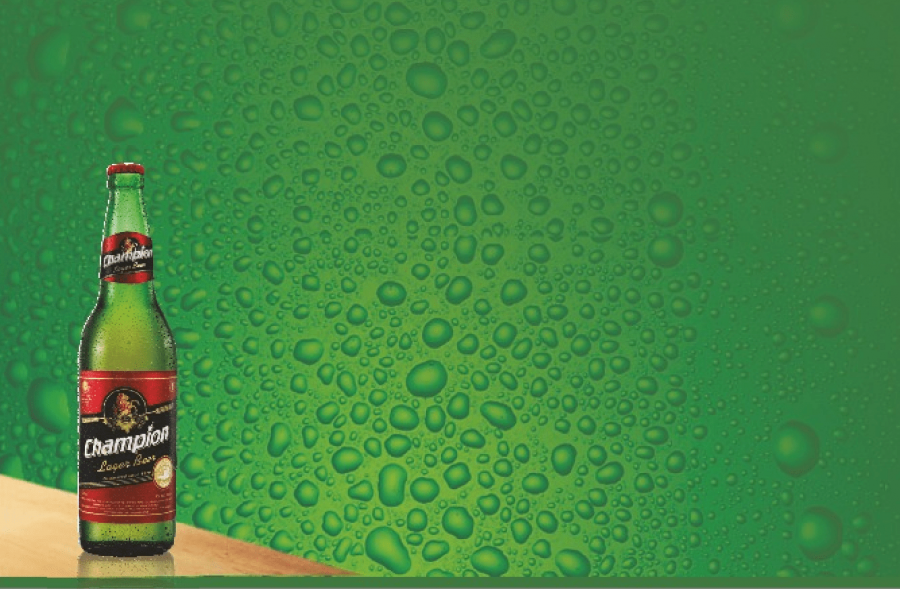Champion Breweries Plc recently published its annual report for the year ended 31 December 2020. Overall, the results compare favourably year-on-year with that of 2019. The results are not entirely unexpected given the company’s quarterly updates and the company’s unaudited financial statements which are readily available.
Fortunately, since the COVID-19 induced lockdown mostly affected residents of Abuja, Lagos, and Ogun state, the impact was not felt by the company as it has little coverage in these areas.
Revenues increased marginally year-on-year by 1.8%, from N6.93 billion in 2019 to N7.05 billion in 2020, while operating profit and profit before tax (PBT) increased by over 91% and 102%, respectively. The vastly improved operating profit and PBT numbers were largely driven by YoY reduction in administrative expenses which reduced by over N143 million, while “Other Income” significantly increased by 80% to N101.2 million (2019: N56.26 million).
READ: Heineken to cut 8,000 jobs under its restructuring programme by the end of Q1 2021
In addition to the improvements in revenues and PBT, as well as tighter controls over its major expenses, the company’s accumulated losses also improved from N103.66 million in 2019 to N92,47 million at the end of 2020 as a result of the company’s total comprehensive income of N11.2 million.
While the 2020 numbers are appreciably better than prior years, there remain several legacy matters that may affect the company’s operating and governance structure in the future. First, Return on Capital (Profit After Tax divided by Total Equity) has remained at 2% for years. To put this into perspective, a long-term investor is probably better off investing in FGN Bonds that offer capital protection and higher returns on investment of at least 4.5% per annum or more, than investing in the company. Also, note that the company has not paid a dividend in many years; in fact, it is not clear if the company has paid any dividend in the last decade.
READ: Champion Breweries shares increase by a whopping 58% in six trading sessions
In August 2019, the Nigerian Stock Exchange (NSE) granted the company an additional two-year grace period to comply with the 20% free float requirements of the Exchange. This extension was subject to the company holding a “facts behind the figures” session to brief the market of its plans to cure its free float deficiency and submitting quarterly compliance reports to the Exchange.
However, rather than reduce its shareholdings, Heineken in early January 2021 increased its ownership in Champion Breweries by acquiring, through its wholly-owned subsidiary Raysun Nigeria Limited, over 1.9 million shares of Champion Breweries at N2.60 per share and raising the ownership of Raysun to 84.7%. Raysun Nigeria Limited’s shareholding in Champion Breweries as at December 31, 2020, was 60.5%.
READ: Nigerian Breweries leveraging, but stacking cash through rising input costs
Prior to January’s share purchase, Asset Management Nominee and Akwa Ibom State Government were the other substantial shareholders in Champion Breweries with 12.3% and 10% holdings respectively in the company. A current update on the company’s website states that “In order to comply with the free float requirement of the Nigerian Stock Exchange, the Board of Directors have initiated necessary steps as at reporting date to ensure that a minimum of 20% of the Company’s issued shares are held by public investors.”
The company’s strategy to comply with NSE’s free float requirements however remains unclear as the substance of Raysun Nigeria Limited’s further increased ownership of Champion Breweries is suggestive of a leverage to launch a takeover bid. Investors’ expectations of a takeover probably also explains the share price movements in the last couple of months. The company’s share price was N0.85 on January 5, 2021 but had risen to N3.76 per share by February 2, 2021 and was trading at N2.44 per share as at March 15, 2021.
READ: Major shareholder splashes N4.95 billion on additional shares of Champions Breweries Plc
Companies listed on the Nigerian Stock Exchange are governed by the NSE Listing Rules and such companies may be delisted for non-compliance with the Listings Rules, breach of the terms and conditions of the general undertaking executed by the company when its securities were listed by the NSE, or where the shares of the company in the hands of the public are insufficient to make a market in the securities. Listed companies may also voluntarily delist from the NSE for reasons that may include high cost of regulatory compliance, inability to raise capital, and restructuring following a scheme of arrangement between the company and its shareholders or creditors. A typical example is that of Ashaka Cement which voluntarily delisted in 2017 following Lafarge’s takeover, which made Ashaka Cement unable to meet the NSE Rule requirement of having publicly tradable shares of not less than 20% on the Exchange.
A good question to ask is why the share price of the company has continued to do so well, considering that the company has not paid dividends in over a decade and is at risk of being delisted from the NSE as the shares of the company in the hands of the public are insufficient to make a market in the securities.
The answer probably lies in the solution to this quagmire. It is either Champion Breweries is eventually acquired by Raysun and get delisted or they raise further capital from the public. The former appears the more likely and it is only a matter of time before we know.















Good job Tade. You have sufficiently laid the platform for further discourse on the future of Champion Breweries Plc as a quoted company.
Good job
Good job
i am a stock broker with 30m units of champion breweries plc shares to sell looking for an interested buyer